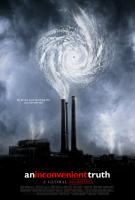The school board in Federal Way, Washington, south of Seattle, has restricted showings of Al Gore’s film on global warming and said it must be balanced with a sufficient opposing viewpoint.
An Associated Press article in the Vancouver Sun said the board also required the school superintendent to approve when Gore’s film, An Inconvenient Truth, can be presented.
The decision followed complaints from parents who said their child was taking the film as fact after viewing it at school.
“Condoms don’t belong in school, and neither does Al Gore,” said a parent of seven who doesn’t want the film shown at all. “He’s not a schoolteacher.”
The board president said he’d received about a half-dozen complaints from parents. None of the board members who voted for the restrictions has seen Gore’s film.
Subscribe to our newsletter
Stay up to date with DeSmog news and alerts







